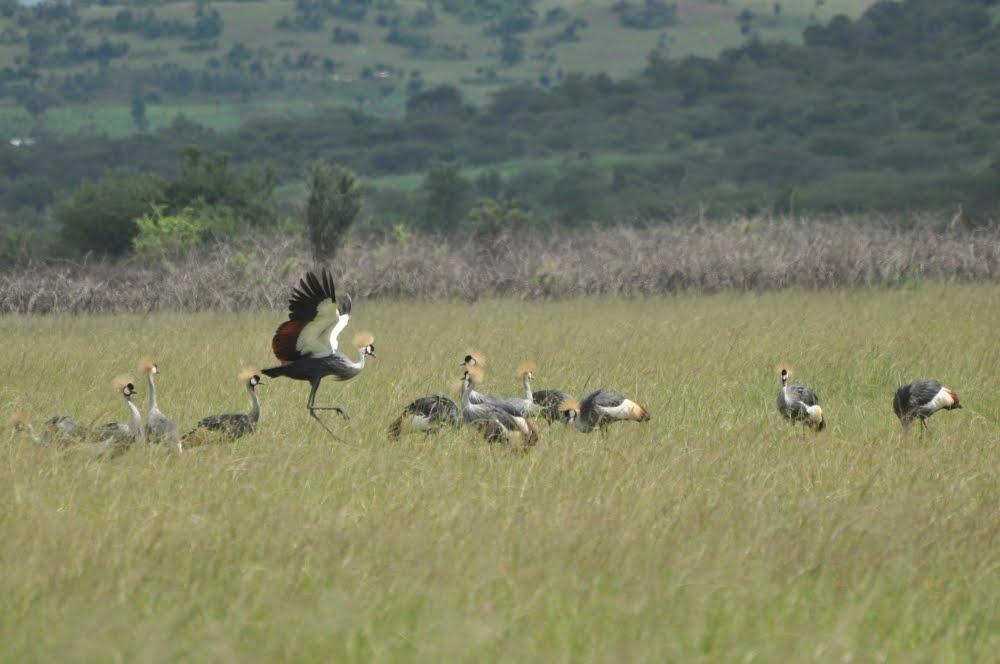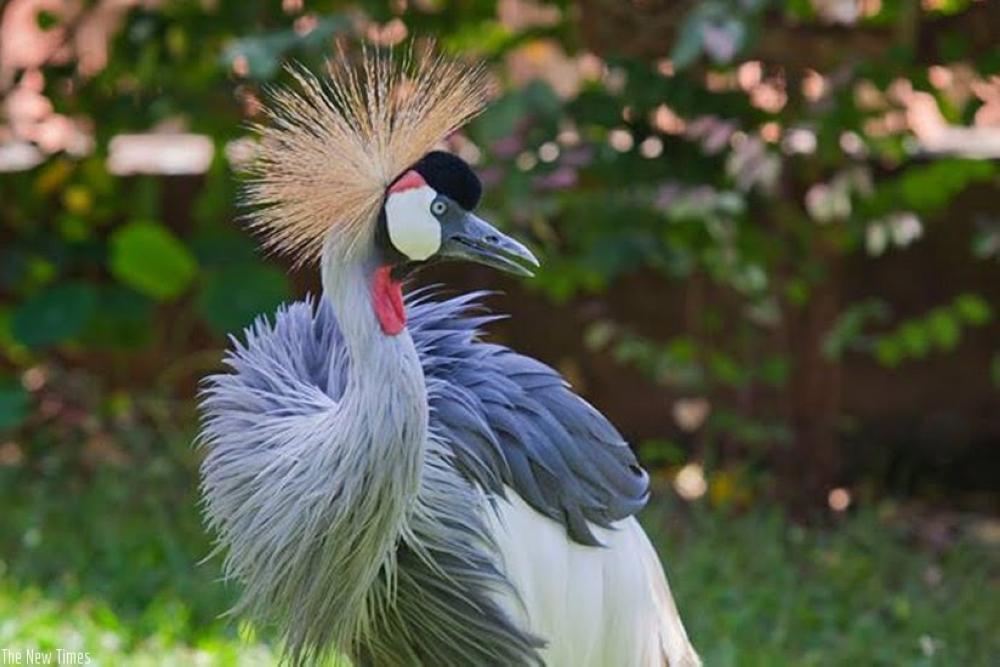Africa-Press – Rwanda. Rwanda Wildlife Conservation Association (RWCA) has signed cooperation agreements with four conservation institutions from Burundi, Tanzania and Uganda to support the protection of grey crowned cranes that migrate across borders.
The MoUs were signed in Kigali on November 21, marking the 10th anniversary of the association in crane conservation. Over the 10-year-period, the grey crowned crane population in Rwanda has grown from around 300 in 2014 to nearly 1,300 by 2025.
RWCA founder and CEO Olivier Nsengimana said the agreements recognise that “cranes don’t know borders,” making joint conservation essential.
Some of the cranes that are kept at Umusambi village in Kigali.
He added that some cranes have been fitted with GPS tracking devices, and data collected has proven that they move into the neighbouring countries. This has led to collaboration with local organisations to protect them, while local communities are trained to help safeguard the birds and also use the technology as a shared tool.
“We realised that following these cranes closely would require travel permits and other complicated procedures, which is why we are seeking ways to work with organisations in those countries.”
He said the slight shift from 1,293 cranes recorded in 2024 to 1,245 in 2025 does not reflect a decline but cross-border movement, especially in wetlands straddling neighbouring countries.
“Our research shows cranes move freely across the region, so protecting them requires harmonised strategies and coordinated action,” he said.
“What would have been a species on the verge of disappearing is now a story of recovery and hope. We’ve restored cranes to wetlands, their natural home, and tripled the population in ten years.”
Nsengimana added that RWCA aims to contribute to Rwanda’s target of increasing protected land from 9 per cent to 11 per cent by 2030.
“We want to play a role in restoring degraded land and ensuring no species goes extinct,” he said, emphasising the organisation’s community-driven approach and its ambition to expand conservation beyond Rwanda’s borders.
The MoUs commit the four countries to improving data accuracy, sharing expertise, fundraising jointly, and advocating for stronger national policies to protect grey crowned cranes.
“Working together across borders gives cranes, and the communities that coexist with them a better chance to thrive,” Nsengimana said.
Permanent Secretary in the Ministry of Environment Fidele Bingwa praised RWCA’s impact, saying its professionalism and persistence have pushed national conservation efforts forward.
“When you see this level of passion, it also pushes government to go beyond what it thought it could do,” he said.
Bingwa noted that RWCA’s work has become a benchmark within the conservation sector.
“What they have achieved in recovering the crane population is remarkable, and the government values partners who bring this level of commitment.”
He added that much remains to be done to protect species and ecosystems facing pressure from population growth and climate change.
For More News And Analysis About Rwanda Follow Africa-Press








